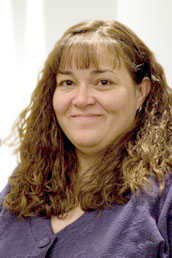There is always debate on what makes a great researcher. Many focus on more traditional research skills such as questionnaire design, data analysis, and presentation skills. However, I think what truly turns a good researcher into a great researcher are critical thinking skills.
Dictionary.com provides two definitions for critical thinking:
- Disciplined thinking that is clear, rational, open-minded, and informed by evidence.
- The mental process of actively and skillfully conceptualizing, applying, analyzing, synthesizing, and evaluating information to reach an answer or conclusion.
Disciplined, active, and skillful are key. It is about being more conscious of the process of thinking. It is about considering all options and questioning assumptions given the current situation.
Stephen D. Brookfield is considered an expert on teaching critical thinking. Brookfield (2012) sees four activities in critical thinking:
1. Hunting or discovering our assumptions
2. Checking the accuracy of our assumptions
3. Seeing things from different viewpoints
4. Taking informed actions
All of these activities need to happen in the context of the situation. Assumptions and actions may vary depending on the context.
How do we develop critical thinking skills in marketing research industry employees? Brookfield offers many helpful suggestions. The four most useful suggestions for marketing researchers are:
- One of the best ways to develop the critical thinking skills of researchers is to model your own critical thinking (Brookfield, 2012). As I work with employees I make sure they understand how I’m thinking through the problem, the options I’m considering, and why I ultimately make a decision. It is important for employees to see I don’t always have all the answers and have to think through options just like they do.
- Critical questioning is also a useful technique. The goal is to have employees “become their own questioners and to develop habits of critical reflection” (Brookfield, 1987, p. 93). One way to develop this skill is to start by having an external person ask the questions to help get to underlying assumptions and multiple viewpoints. I have used this approach when reviewing reports from analysts. Instead of telling them what to write, I ask them question to guide them to an answer. It helps reinforce what to think about for the next report.
- Using a form of Brookfield’s (2012) speaking in tongues exercise can also be helpful. As he explains “this activity is designed to show students how the same ideas, facts, skills, or content can be interpreted in different ways” (p. 62). I have used this in training exercises to demonstrate how a simple statement can be interpreted different ways and it is important to give clear instructions that remove the possibility of interpretation.
- Finally, using a form of structured devil’s advocacy is a good way to present both sides of an argument (Brookfield, 2012). This helps people develop their skills in seeing situations from multiple viewpoints. I frequently use this when I want employees to think about the potential pros and cons of an action. It is all about making an informed decision.
In order to develop critical thinking skills it is imperative to keep the whole idea of critical thinking top of mind. It is easy to fall into old habits. If you are conscious of trying to develop critical thinking skills you can reframe your approach in individual conversations to slip in some critical thinking activities. It is important to push employees to spell out their assumptions and ask themselves questions. Once they start doing this they are on their way to being a great researcher!
Brookfield, S.D. (2012). Teaching for critical thinking: tools and techniques to help students question their assumptions. San Francisco, CA: Jossey-Bass.
Brookfield, S.D. (1987). Developing critical thinkers: challenging adults to explore alternative ways of thinking and acting. San Francisco, CA: Jossey-Bass.




